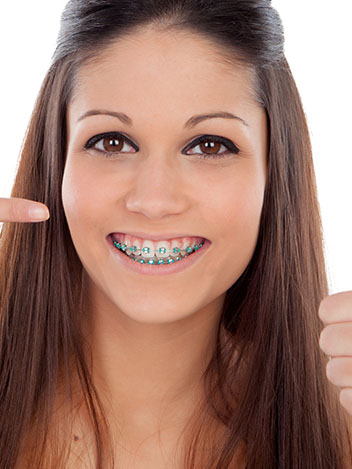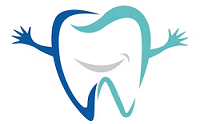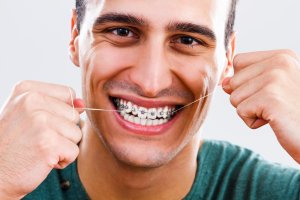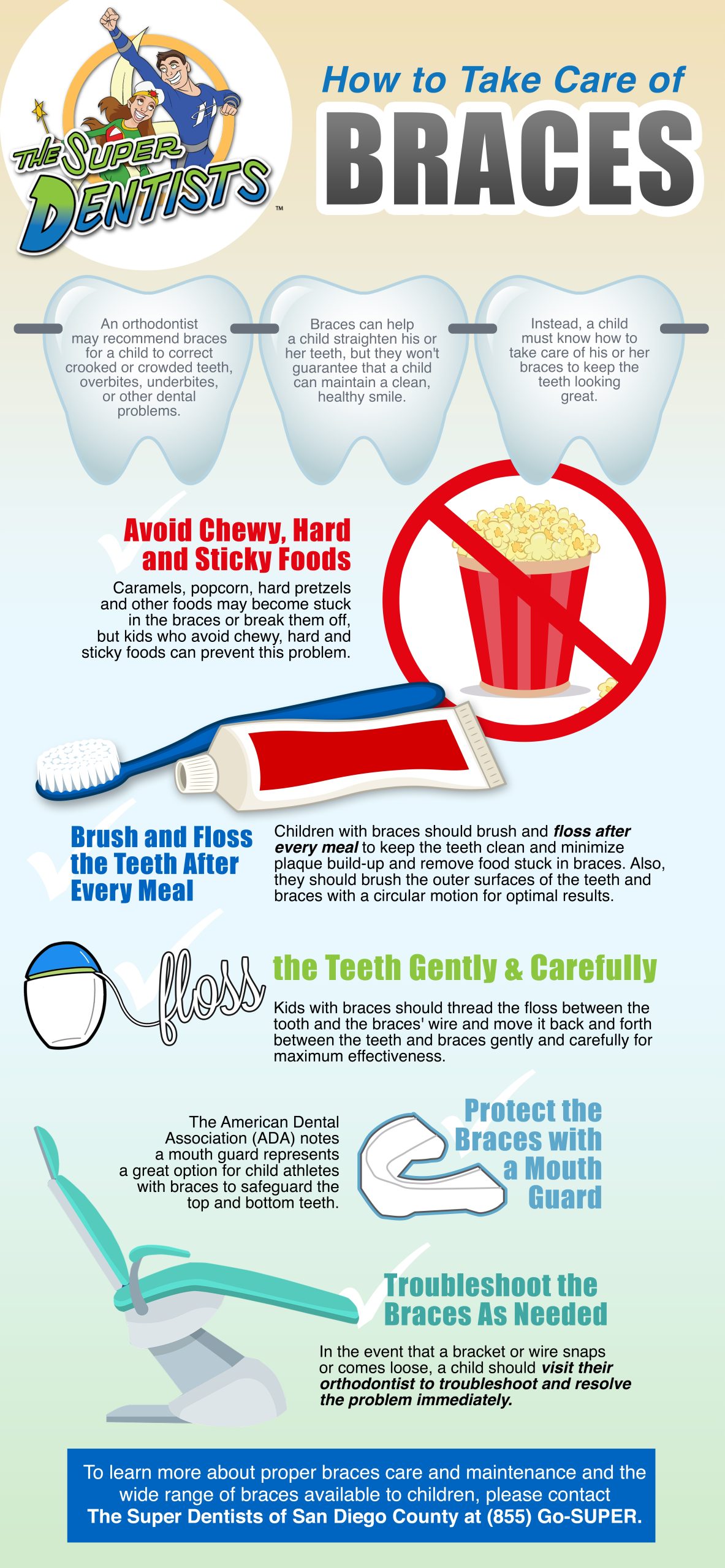Introduction
Having braces can be a life-changing experience, as it helps to align your teeth and create a beautiful smile. However, it also comes with certain challenges. In this article, we will discuss how to navigate through the journey of life with braces, focusing on eating, cleaning, and managing discomfort.
2. Eating with Braces

When you have braces, it’s important to make some adjustments to your eating habits to avoid damaging the brackets or wires. Here are some tips:
2.1 Stick to Soft Foods
Opt for soft foods that are easy to chew and won’t get stuck in your braces. Examples include mashed potatoes, yogurt, soups, and smoothies.
2.2 Cut Food into Small Pieces
Before eating, cut your food into smaller, bite-sized pieces. This will make it easier to chew and reduce the risk of damaging your braces.
2.3 Avoid Sticky and Hard Foods
Avoid foods that are sticky or hard, such as chewing gum, caramel, popcorn, and nuts. These can get stuck in your braces or cause damage.
3. Cleaning Your Braces
Maintaining good oral hygiene is crucial when you have braces. Here are some tips to keep your braces clean:
3.1 Brush After Every Meal
Brush your teeth after every meal using a soft-bristled toothbrush and fluoride toothpaste. Pay extra attention to cleaning around the brackets and wires.
3.2 Use Interdental Brushes
Interdental brushes can help clean hard-to-reach areas between the brackets and wires. Use them to remove any food particles or plaque.
3.3 Floss Regularly
Flossing is essential to remove plaque and food debris from between your teeth. Use a floss threader or orthodontic floss to navigate around the braces.
Summary
Life with braces can present some challenges, but with the right knowledge and techniques, you can navigate through them successfully. When it comes to eating, it’s important to avoid certain foods that can damage your braces, such as hard candies, popcorn, and sticky treats. Opting for softer foods and cutting them into smaller pieces can make mealtime more manageable.
Maintaining proper oral hygiene is crucial during orthodontic treatment. Regular brushing and flossing, along with using specialized tools like interdental brushes and floss threaders, will help keep your teeth and braces clean. It’s also essential to attend regular check-ups with your orthodontist to ensure everything is progressing as planned.
Braces can sometimes cause discomfort, especially after adjustments. Over-the-counter pain relievers and orthodontic wax can provide relief for soreness and irritation. It’s important to communicate any significant discomfort or issues to your orthodontist, as they can provide additional guidance and support.
By following these tips and maintaining a positive mindset, life with braces can be a rewarding experience. Remember that the end result – a beauti click to find out more ful, straight smile – is well worth the temporary inconveniences. Embrace the journey and take pride in the progress you make along the way!
- Q: What foods should I avoid while wearing braces?
- A: It is best to avoid sticky or hard foods such as chewing gum, popcorn, and hard candies as they can damage your braces.
- Q: Can I still eat fruits and vegetables?
- A: Yes, you can still enjoy fruits and vegetables, but it is recommended to cut them into small, bite-sized pieces to make them easier to chew.
- Q: How should I clean my braces?
- A: You should brush your teeth and braces thoroughly after every meal using a soft-bristle toothbrush and fluoride toothpaste. It is also important to floss daily and use a mouthwash to keep your braces clean.
- Q: Will braces cause discomfort?
- A: It is common to experience some discomfort or soreness after getting braces or having them adjusted. Over-the-counter pain relievers can help alleviate the discomfort. If the pain persists, consult your orthodontist.
- Q: How often should I visit my orthodontist?
- A: Typically, you will need to visit your orthodontist every 4-6 weeks for adjustments and check-ups. These visits are crucial for the progress of your treatment.

Welcome to my website! My name is Tyson Schulz, and I am a dedicated and passionate professional Pediatric dentist. With years of experience in the field, I have had the privilege of helping countless children achieve and maintain healthy smiles.



